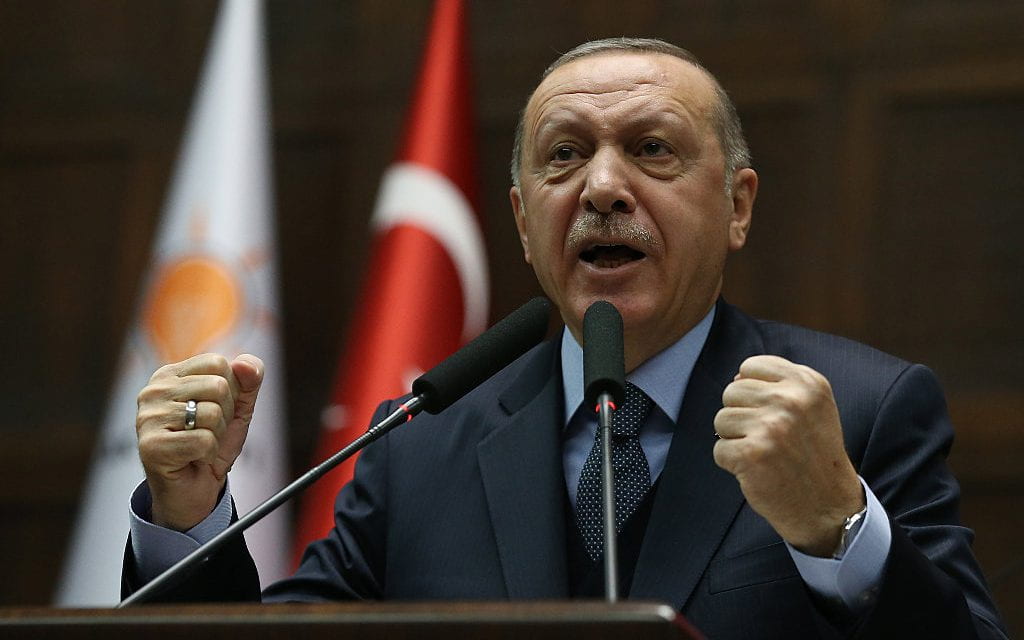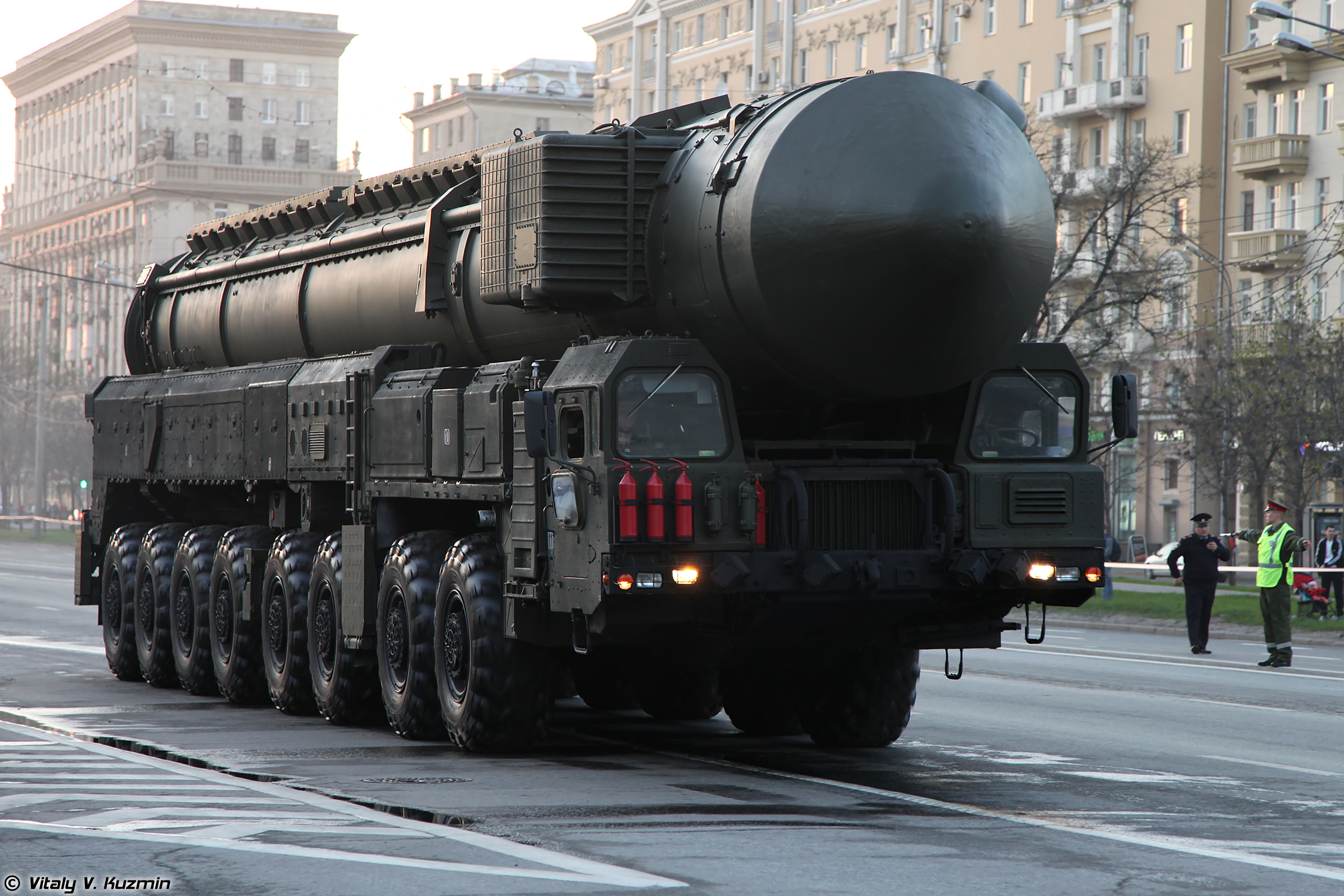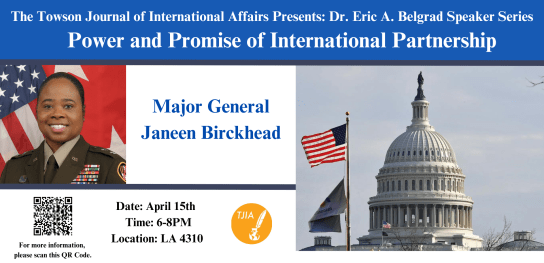The Evolution of Two Empires
From the Treaty of Hunkar-Iskelesi in 1833, to a recent deal for the S-400 missile defense system, history has proven that Russia and Turkey are willing to sublimate their imperialist instincts when national progress is at stake. As the epoch of divine rule and absolute power drew its last breath, these once-great empires struggled to find their place in the emerging world order, one distinguished by an emphasis on popular consent and international organizations. For much of the twentieth-century, Russia-Turkey relations were at a low point; both nations found themselves at odds with one another throughout the Cold War, and also during the Korean War. However, with the dissolution of the Soviet Union in 1991, Turkey could now turn its gaze eastward without fear of reprisal from Western allies. In the last three decades alone, trade between the two states has grown exponentially, generating an atmosphere of trust that has permeated other areas of diplomacy. As the West fears a recurrence of the bipolarity present during the Cold War, the improved relations between Turkey and Russia have become a recent source of consternation to the West.
A Brotherhood
The critical role of national leadership in facilitating these relations cannot be overstated. Since the turn of the century, Russia has been under the (direct and indirect) rule of President Vladimir Putin, and President Recep Tayyip Erdogan has ruled over Turkey since 2003. The historical relationship between the two states is heavily steeped in conflict, certainly sufficient to color diplomatic behavior towards one another. However, the commonalities of the two leaders have pushed any harsh sentiments that may have been garnered over the last five centuries to the background. Through the fomentation of anti-Western sentiments and generously-applied populism, President Putin and President Erdogan have cemented themselves as thorns in the side of the West. As emperors in a world that forbids conquest, Putin and Erdogan seek not expansion, but the degradation of Western influence. This shared goal has united the two leaders, both of whom now comprise an informal “strongman brotherhood.” [1]
Although not explicitly classified as an ally of Turkey, Russia’s status as a “strategic partner” has generated considerable economic, military, and trade benefits for the Mediterranean state. [2] In 2017, Turkey purchased two Russian-made S-400 missile systems, one of the most effective air defense systems currently available on the market. [3] Russia has also begun construction on Turkey’s first-ever nuclear power plant, which will likely be crucial to Turkey’s sustainable energy program in the future. To further reinforce the extent of this mutually-beneficial relationship, Turkey has approved the construction of pipelines through which Russian natural gas may flow. By opening Turkey’s borders to Russian gas, President Erdogan has relieved Russia’s previous dependency on an increasingly West-aligned Ukraine. [4]
As a “bridge” to Europe, the Middle East, and Eurasia, Turkey’s geographic location creates a bottleneck for the flow of natural gas across the continents. The construction of new pipelines across Turkey could become an incredibly valuable bargaining chip, especially since the EU imports roughly forty-percent of its natural gas from Russia. [5] Even if Europe decreases their dependency on Russian gas, Turkey’s prime location on the Mediterranean Sea guarantees that no matter which country succeeds Russia as a primary exporter, they will play at least some role in the trade process. The improved relationship between the two states has also prompted each to lift trade barriers previously placed on the other, a reversal which has caused a forty-seven percent increase in Turkish exports to Russia, and a thirty-six percent increase in Turkish imports from Russia. [6]
From 2017 to 2018, President Erdogan and President Putin met one-on-one a total of sixteen times, and spoke via telephone on thirty separate occasions; during that same period, President Erdogan met one-on-one with President Trump only five times, and spoke to him just eleven times via telephone. Despite a remarkably similar strongman attitude to President Erdogan, with regard to the aforementioned “strongman brotherhood,” President Trump was given the “three’s a crowd” treatment. The recent cooperation between Turkey and Russia, as well as the significant amount of contact between the two leaders, may signal not only the beginning of Turkey’s departure from the West, but also the erosion of past commitments to democratization and liberalization. However, with a new incumbent in the White House, only time will tell how U.S.-Turkey relations are to develop. [7]
An Uphill Battle
In addition to its boost to the Turkish economy, recent developments with Russia have granted Turkey access to military technology, specifically to the S-400 missile defense system. Although Turkey has been a member of NATO since the 1950s, the West has been reluctant to provide the Mediterranean state with adequate defensive weaponry. This reluctance has not curried favor with a state focused on an overhaul of its defense sector, and as a result, Turkey has sought out new suppliers to their East.
While not nearly as formidable as the United States’ Terminal High Altitude Area Defense (THAAD) nor as adaptable as the Aegis missile defense system, the S-400 is certainly a strong countermeasure to ballistic missiles and hostile aircraft. Its missiles have a maximum range of 400km, and can reach speeds upwards of Mach 3 while maintaining an altitude of 100,000 feet. [8] Additionally, its on-board radar system can simultaneously monitor up to 300 planes, helicopters, laser-guided missiles, drones, and ICBMs within 600km. [9] Turkey has only purchased four units, which are not nearly enough to cover every square mile of Turkish airspace; however, a fleet of these systems would be able to provide blanket security. These units would likely only be deployed to areas that would be well-served by reliable protection, such as Turkey’s largest cities (Istanbul, Ankara, Izmir), vital military installations, and crucial sites of infrastructure and industry. [10] However, considering that the S-400 finds strength and effectiveness in numbers, the risk incurred by a relatively weak air-defense fleet is significant. In the event of an actual conflict, the limited quantity of S-400s currently possessed by Turkey is not sufficient to deter attacks from, or defend against a technologically superior adversary.
Even still, Turkey’s purchase of the S-400 system has been rebuked by the U.S., which cited the acquisition as a violation of the Countering America’s Adversaries Through Sanctions Act (CAATSA), which “bars America’s allies from using Russian radar technologies.” [11] As a result of this breach, the U.S. has removed Turkey from the F-35 program, and has halted domestic training for all Turkish pilots. [12] In response, Turkey has opted to improve their F-16 program, a process which will increase the lifespan of Turkey’s F-16s from 8,000 flight hours to 12,000 flight hours. While these jets from the late-1980s lack the stealth capabilities and speed of their twenty-first century counterparts, with just under 250 F-16s in active service, Turkey’s fleet is the third-largest in the world, just behind the U.S. and Israel. [13]
A relatively inferior air force notwithstanding, with 700,000 active personnel, the Turkish Armed Forces (TAF) is the second-largest standing army in NATO, surpassed only by that of the U.S. [14] Twenty years ago, the circumstances were different. Turkey has since become a major player on the world stage, and above all, a nation determined to carve her own path. While President Erdogan undoubtedly realizes that war with the West is unwise, Turkey’s economic and military strength allows him a little wiggle room when interpreting treaties and abiding by other international agreements. As long as Turkey continues to align concurrently with the West and Russia, this back-and-forth of button-pushing is likely to continue.
Western Shortcomings
When considering Turkey’s past attempts at Western integration, this recent splintering should not come as a shock. In 1989, the European Commission (EC) outlined various economic, social, and political preconditions which were to be fulfilled before Turkey’s accession to the European Union (EU) could be formalized. In 2000, the EU designated Turkey as a “candidate state,” and accession negotiations began in 2005, where they remain today. Although negotiations are currently at a standstill and show no sign of progressing further, Turkey continues to attend summits and conferences. Turkey’s geographic ambiguity has prompted statements from leaders like German Chancellor Angela Merkel and former French President Nicolas Sarkozy, who have questioned “whether Turkey is a European country and therefore has the right to join the EU.” [15] The EU has not necessarily been operating in good-faith—if integration truly is the goal, by applying the novel concept of “absorption capacity,” the EU has failed in this endeavor spectacularly. Even if all of the preconditions are met, “absorption capacity” allows the EU to summarily deny Turkey’s membership “if [the EU] judged that it was not ready to take in a new member.” [16] If the “prize” (entry into the EU) is not guaranteed, accession talks are no longer negotiations, they are a blind leap of faith. Understandably, Turkey hasn’t taken kindly to the finish line being moved after the starter pistol has been fired. As a result, Turkey has detached itself from the EU process, and sought out alliances which lie further east. [17]
President Putin has certainly kept this back-and-forth in mind, and he has been playing the long game. Immediately following the 2016 coup attempt in Turkey, President Putin reached out to express his strong support for President Erdogan. Putin’s olive branch was graciously accepted, and the Turkish Foreign Minister said that “we have received unconditional support from Russia, unlike other countries”—seemingly a dig at the “half-hearted” shows of support from Western nations in the coup’s aftermath. [18] President Putin saw a crack in NATO’s wall, one which he will likely continue to exploit. Unbeholden to the EU or NATO, Russia is free to pursue her national interest, unhindered and in plain sight. While NATO may have once been able to keep Turkey in line with the threat of sanctions and withdrawal of aid, the deterring ability of these ultimatums has diminished considerably. Gas pipelines have bestowed Turkey with a degree of leverage, and a formidable military makes calling bluffs an inadvisable course of action for the West.
The West has been hesitant to cooperate militarily with Turkey, whose main reasoning behind their acquisition of the S-400 was this reluctance in providing Turkey with defensive weaponry. Turkey has sought ballistic missile capacity for decades, but has been repeatedly stopped by the threat or imposition of sanctions. Turkey’s options are limited, and with regard to the S-400 missile system, Russia “offered no co-production, offsets, or tech-transfer” for the sale—all of which were present during U.S.-Turkey negotiations for the Patriot missile system. [19] The lack of consensus reached during these negotiations has pushed Turkey away, and unless they are brought back to the table by better incentives and/or technology, this divide will likely continue to expand. The United States’ chief gripe with the S-400 acquisition was that it would provide Russia direct access to the various technologies onboard the F-35 While blacklisting Turkey from the F-35 program assuaged the concern that classified technology might fall into the wrong hands, it has only driven the wedge between the West and Turkey deeper.
As mentioned previously, President Erdogan seems to be playing both sides. On one hand, he is aligning Turkey’s national interest with that of Russia, but never going so far as to jeopardize Turkey’s standing in NATO or risk military intervention by another state. In this frightful game of tug-of-war, the West employed both incentives and sanctions to bring Turkey back onside. By cancelling Turkey’s order for 120 F-35s, the United States hoped that an immediate dismantling of the S-400 system would follow. When this proved unsuccessful, more drastic measures were taken.
In December 2020, U.S. sanctions targeted the Turkish defense sector, and these seem to have had some impact. Defense Minister Akar has called for an open dialogue between the U.S. and Turkey, one which has been closed since Turkey’s acquisition of the S-400 systems. Turkey has backpedaled, and “insists it is not planning to integrate S-400s into its NATO armaments,” and that “it might not keep the S-400s operational at all times.” [20] While Turkey has shown a willingness to compromise on the S-400 issue, they also have expressed that they no intention of being backed into a corner. Earlier this year, Defense Minister Akar said that “[Turkey] can find a solution for the S-400s in our negotiations with the U.S.…[but] if we cannot find a solution, we cannot go anywhere in relations with the U.S.” [21]
Planning for the Future
There is a line which must be walked—harsher sanctions will exacerbate tensions between Turkey and the U.S., widening the already cavernous divide present in U.S.-Turkey relations. If this turbulence goes without remedy, a codified alliance with Russia becomes increasingly attractive, and perhaps the only option for Turkey, a state that wishes to issue its military, economy, and defense sector an update fitting for the twenty-first century. The realities of the post-war period no longer apply; the benefits that prompted Turkey to join NATO in 1952 are no longer sufficient to evoke loyalty from President Erdogan, and by extension, commitment from the organizations’ second-largest fighting force.
Considering the four centuries of conflict during the Ottoman-Russian Wars, the relationship cultivated by President Erdogan and President Putin over the last decade marks a turning point in Turkey-Russia relations. If Russia and Turkey are able to prove that they are able to stand firm against Western influence despite any heavy sanctions which may be thrown their way, states from the Caspian Sea to the Baltic Sea will take notice. If a sustainable Eastern bloc is revived that is able to promise greater incentives than those currently offered by the West, bubbling Euroscepticism could spread across latitudes and significantly alter the current geopolitical landscape of Europe and Eurasia. Although the Soviet Union fell in 1991, its dissolution did not eliminate Russia’s ability to influence former Soviet satellite states. The “brotherhood” of President Putin and President Erdogan is one of ruthless, unbending, and unabashed pragmatism; however, the presence of other authoritarian, self-interested leaders in the region (such as Hungary’s Viktor Orban and Belarus’ Alexander Lukashenko) makes the already-formidable duo ripe for expansion.
Since the end of WWII, the United States and Europe have been the principal drivers of global policy. International organizations like the EU bestow upon their member-states a degree of influence as well; entry into the EU should be selective, but accession agreements cannot be conducted in bad faith. While the West has enjoyed a nearly eighty-year reign as the dominant global power, a haughty and distrustful attitude towards admitting new member-states may prove disastrous to its continuing in this role. This “Eastern bloc” may present a legitimate challenge to Western dominance, and its establishment should be prevented. Unfortunately, recent attempts to reel Turkey back in seem to have had the opposite effect. By denying Turkey access to tools critical in updating their economic, energy, and defense sectors, the West has effectively cemented Turkey’s alliance with Russia. If other nations follow suit, the adversary of the twenty-first century will likely be an alliance of well-armed authoritarian states. States in this alliance would no longer require goodwill from the West to survive, and with this dependency absent, they would no longer have to temper their nationalist or imperialist desires.
References
- Neset, Siri, and Arne Strand. 2019. “Turkey`s International Relations.” CMI.
- Ibid
- “Turkey and Russia Cosy up over Missiles.” The Economist. The Economist Newspaper. May 4, 2017.
- “Turkey’s International Relations.” CMI
- Moravcsik, Andrew. “Power of Connection: Why the Russia–Europe Gas Trade Is Strangely Untouched by Politics.” Nature News. Nature Publishing Group, December 2, 2019. https://www.nature.com/articles/d41586-019-03694-y.
- “Turkey’s International Relations.” CMI
- Ibid
- “S-400 Triumf.” Missile Threat. Accessed February 28, 2021. https://missilethreat.csis.org/defsys/s-400-triumf/.
- “S-400 Triumph Air Defence Missile System – Army Technology.” Army Technology, February 23, 2021.
- Kibaroğlu, Mustafa. “On Turkey’s Missile Defense Strategy: The Four Faces of the S-400 Deal between Turkey and Russia.” PERCEPTIONS: Journal of International Affairs24, no. 2 (2019): 159-174.
- Birol, Cem. “Turkey’s S-400 Missile Crisis: Four Possible Outcomes.” Issue Brief6 (2019).
- Stewart, Phil. “Turkish F-35 Pilots No Longer Flying at U.S. Base: Pentagon.” Reuters. Thomson Reuters, June 10, 2019.
- Newdick, Thomas. “Turkey Prepares To Extend The Life Of Its Massive F-16 Fleet After F-35 Embargo.” The Drive. The Drive, February 4, 2021.
- Statista Research. “Number of Military Personnel in NATO Countries 2020.” Statista. November 26, 2020.
- Christian W. Haerpfer, Patrick Bernhagen, Christian Welzel, and Ronald Inglehart. Democratization, 2nd, 65-69. Oxford: Oxford University Press, 2019.
- Ibid
- Ibid
- “Turkey’s International Relations.” CMI
- Ibid
- Ibid
- Al Jazeera. “Turkey Signals Compromise with US over Russian S-400 Missiles.” Turkey News. Al Jazeera, February 9, 2021







